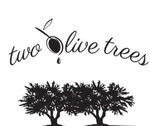OLIVE OILS
Q. What is the shelf life of Olive Oil?
A. Consumers should use Olive Oil within 14 months from crush/harvest date. Olive Oil benefits and quality decreases with time. It's important to remember olive oil is a perishable food-all bottled oil will go rancid eventually-but it is said when properly handled, sealed and stored in a cool, dark place, olive oil will be "good" for 18-24 months from the date it was harvested. If you bottle is older than two years, consider starting with a fresh one.
Q Are your Olive Oils filtered?
A. No-our Olive Oils are not filtered. We pump our oils into large stainless steel tanks housed in our warehouse. Gravity then causes particulates that were separated out with the oil during milling to sink to the bottom of the tank. This process is called "racking". The most noticeable difference between an unfiltered and a filtered oil is appearance. The unfiltered oil may look a bit cloudy, because of residual particles that weren't removed through gravity in the settlement tank.
Q. What affects the quality of Olive Oil?
A. Time-Olive Oil benefits and quality decreases with time.
Light-Extended exposure to light can deteriorate the quantity and quality of the antioxidants found in Olive Oil.
Heat-The optimal storage temperature for Olive Oil is 60-72 degrees F. Warm temperatures cause off flavors in the Olive Oil and deteriorates the quality of the oil.
Q. Can I cook with Extra Virgin Olive Oil?
A. Extra Virgin Olive Oil is one of the best oils to cook with! Extra Virgin Olive Oil is perfect for not just cooking, it is great for: frying, sauteing, poaching, dressing and baking. Extra Virgin Olive Oil has a high smoke point that can hold up to high cooking temperatures. [410] degrees F.
Q. Can I substitute Olive Oil for butter in baking?
A. Yes-below is the conversion chart. Note that solid fats act different than liquid fats. When substituting liquid for liquid [such as veg oil] the results are the same. When substituting solid to liquid there may be a change in texture and crispness.

Q. Are your Olive Oils Kosher?
A. Yes-Our EVOO's and our Custom blend Oils are certified Kosher (pareve) *Please see Kosher certificate.
Q. Are your Olive Oils Gluten Free?
A. Yes-All our Olive Oils are Gluten Free. *Please see allergen statement
Q. Are your Olive Oils Dairy Free?
A. Yes-All our Olive Oils are Dairy Free. *Please see allergen statement.
Q. Is your butter Olive Oil Dairy Free?
A. Yes- the butter flavor is derived from a plant based natural essential oil. Proprietary blend of botanical herbs.
BALSAMICS
Q. What is the shelf life of your Balsamic vinegars?
A. We recommend 5 years. The acidity in the vinegar acts as a natural preservative. We suggest to use within 5 years to obtain the best flavor profile. Vinegars do not really expire they simply become more acidic causing a change of appearance and flavor.
Q. What is the "Mother" in Balsamic vinegar?
A. "Mother" of vinegar also called "Mycoderma aceti" (a New Latin expression) is a substance composed of a form of cellulose and acetic acid bacteria that develops on fermenting alcoholic liquids which turns alcohol into aceti acid with the help of oxygen from the air. It is added to wine, cider or other alcoholic liquids to produce vinegar. Mother of vinegar can also form in store bought vinegar if there is some non-fermented sugar and/or alcohol contained in the vinegar. While not appetizing in appearance, mother of vinegar is completely harmless and the surrounding vinegar does not have to be discarded because of it. It can be filtered out using a coffee filter, used to start a bottle of vinegar or simply left in and ignored.
Q. Can you define what natural flavor is on the ingredients?
A. Natural flavors are derived from the fruit/herb themselves-botanical essential oils.
Q. What are natural sulfites found in Balsamic vinegar?
A. Natural sulfites develop naturally as a by-product of fermentation. Sulfites are chemical compounds found in nature, they preserve food and prevent bacterial growth. Naturally occurring sulfites are generated in very small amounts ranging from 6-40 ppm.
Q. Does your Espresso Balsamic vinegar contain caffeine?
A. No, there is no caffeine in the product, flavoring comes from botanical essential oils.
Q. Are your balsamics Kosher?
A. No-our Balsamic vinegars are not Kosher certified.
Q. Are your Balsamic vinegars Gluten Free?
A. Yes-All of our balsamic vinegars are Gluten Free. *Please see allergen statement.
Q. Are your Balsamic vinegars Dairy Free?
A. Yes-All of our Balsamic vinegars are Dairy Free. *Please see allergen statement.
Q. Are your Balsamic vinegars Vegan?
A. Yes-They are both Dairy Free and Vegan.
Q. Is there added sugar to your Balsamic vinegars?
A. No-the sugar found in the Balsamic vinegars are natural sugars from the fruit/plant/ingredient. We do not add any artificial colors, artificial flavors, ingredients or preservatives to our products. Products are all natural.
Q. Are your Balsamic vinegars pasteurized?
A. No-our Balsamic vinegars are unpasteurized therefore contain antimicrobial compounds, acetic acid and antioxidants.
*Kosher Certificates
*Allergen Statement
